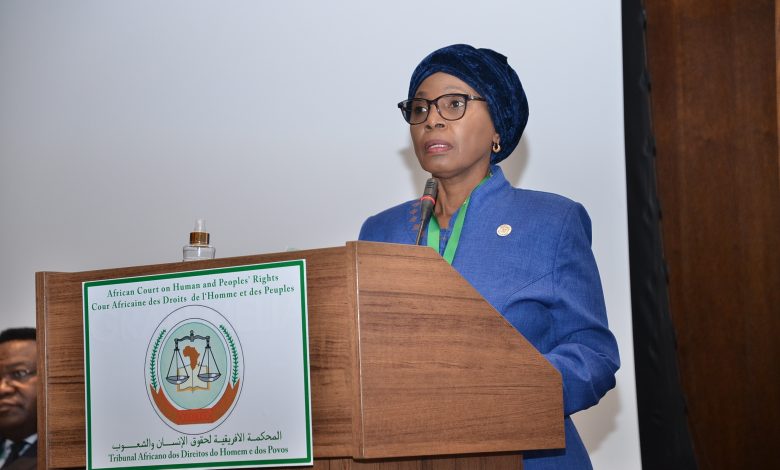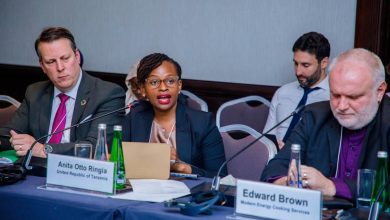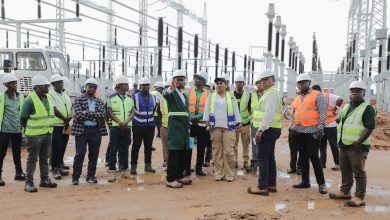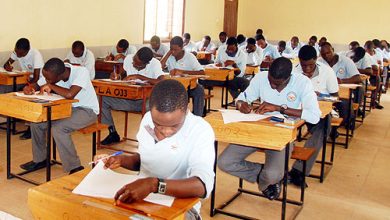Justice Aboud concludes historic term at African Court

ARUSHA: TANZANIAN Lady Justice Imani Daud Aboud has officially concluded her tenure as president of the African Court on Human and Peoples’ Rights (AfCHPR), closing a historic chapter marked by progress, stability and a strong push for gender representation in continental governance.
The court, currently convening its 77th Ordinary Session in Arusha, elected a new leadership panel yesterday.
Justice Modibo Sacko of Mali was voted in as the new president, succeeding Justice Aboud.
Justice Sacko previously served as her vice-president. Justice Bensaoula Chafika of Algeria was elected as the new vice-president of the Court.
Justice Aboud first assumed the presidency of the court in May 2021 and was re-elected in July 2023 for a final two-year term.
She initially joined the African Court as a judge in July 2018 and was re-elected for a second and final six-year term in February 2021.
Justice Sacko was elected to the court in February 2021 and became vice-president in July 2023.
His elevation to president reflects a continuation of leadership that has emphasised judicial independence and continental outreach.
Justice Aboud’s presidency marked several milestones.
She was the first woman from East Africa to lead the court, presiding over an era that saw increased visibility of the institution, enhanced engagement with member states and a reaffirmation of its mandate to protect human and peoples’ rights across the African Union.
Her leadership, alongside Justice Sacko, was defined by legal rigour and institutional strengthening.
The duo worked to expand the court’s relevance and accessibility, reinforcing its reputation as a central pillar of Africa’s human rights framework.
The election of the new Bureau was conducted via secret ballot among the court’s 11 sitting judges, an internal process designed to uphold impartiality and judicial independence.
ALSO READ: African Court calls for reparations for women, children in war-torn areas
The election brought together an esteemed panel of jurists representing all regions of Africa, including Justice Blaise Tchikaya (CongoBrazzaville), Justice Rafaâ Ben Achour (Tunisia), Justice Tujilane Rose Chizumila (Malawi), Justice Dumisa Ntsebeza (South Africa) and Justice Stella Isibhakhomen Anukam (Nigeria).
They were joined by Justice Angela Mudukuti (Zimbabwe), Justice Naceesay Salla-Wadda (The Gambia), Justice Koffi Afande (Togo), Justice Aboudou Assouma (Benin), Justice Modibo Sacko (Mali) and Justice Imani Daud Aboud (Tanzania).
Justice Aboud succeeded Justice Sylvain Oré of Ivory Coast as president and became a symbol of regional advancement and gender equity at the highest levels of judicial leadership.
Justice Sacko, who previously succeeded Kenya’s Justice Ben Kioko as vice-president, has also played a pivotal role in supporting the Court’s judicial work and expanding its diplomatic engagements.
In addition to electing new leadership, the court will today hold a joint retreat with the African Commission on Human and Peoples’ Rights (ACHPR) to discuss ways to enhance complementarity between the two institutions.
Tomorrow, the court is set to hold a public hearing in the long-running case of African Commission on Human and Peoples’ Rights vs Republic of Kenya (Application No. 006/2012), commonly known as the Ogiek case.
On Thursday, the court will deliver seven decisions adopted during its 76th and 77th Ordinary Sessions.
Both the public hearing and the delivery of judgments will be open to the general public at the Court’s headquarters in Arusha.
As a key judicial organ of the African Union, the African Court plays a crucial role in interpreting and enforcing human rights law across the continent.
Leadership transitions such as this are essential to ensuring the Court’s continued credibility, independence and responsiveness to emerging challenges.





